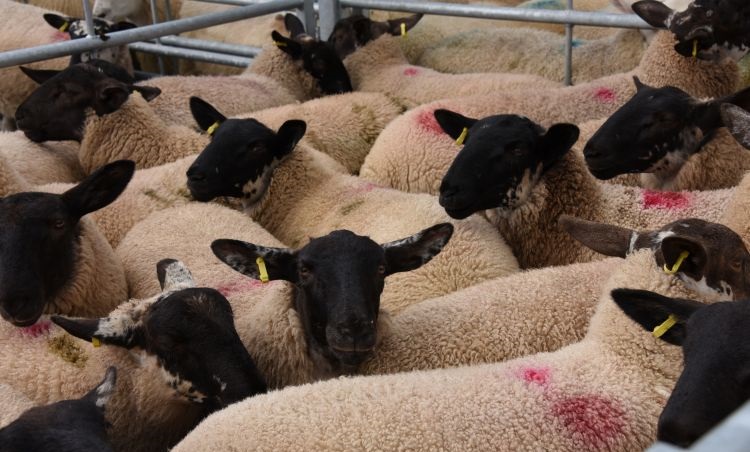
Increasing imports, the cost-of-living crisis, the effects of an unusually dry summer and high input costs were reflected in volatile farmgate prices in Wales during the first few weeks of 2023.
This is according to Hybu Cig Cymru's (HCC) new report [PDF], which explores a cocktail of market challenges which has put pressure on lamb prices going into the new year.
For the week ending 28 January 2023, the prime lamb average price at auction markets in Wales stood at 227.8p per kg.
This is a decline of 5p on the previous week, however the price remains some 9p above the longer term average.
The report studies in detail how there is a greater carryover of old season lambs into the new year than usual at this time of year.
Dry summer weather held back grass growth, while Russia’s invasion of Ukraine exacerbated high inflation in agricultural inputs, meaning lambs were slower than usual to finish during 2022.
In addition, domestic demand has been subdued by consumers tightening their belts, and recently-issued November trade figures showed a rise in sheepmeat imports into the UK.
Glesni Phillips, HCC's intelligence, analysis and business insight executive, said there had been an increase in imports from New Zealand.
"This has come at a time when Welsh lamb supply is itself higher than usual because of delayed finishing times caused by higher feed prices and the summer drought stunting pasture growth.
“We have recorded 1.2m head throughput at UK abattoirs during December 2022; that’s five per cent higher than December 2021 and 7% higher than November last year.
"We can expect to see this higher supply continue into 2023 because there is a larger carry over of old season lambs on the ground than we would usually experience at this time.”
Ms Phillips highlighted positive results for the levy board's export work, which saw volumes increasing month-on-month during autumn 2022.
She said HCC’s consumer experts were reporting that domestic customers were spending less and feeling the pinch as inflation hit household budgets.
“Although demand over Christmas was good, the January blues and continued cost of living crisis is not helping consumer demand for all kinds of premium proteins into the New Year," she said.
“There is evidence that consumers are looking to trade down at retail and cut back on eating out so sluggish demand is not unexpected.”
